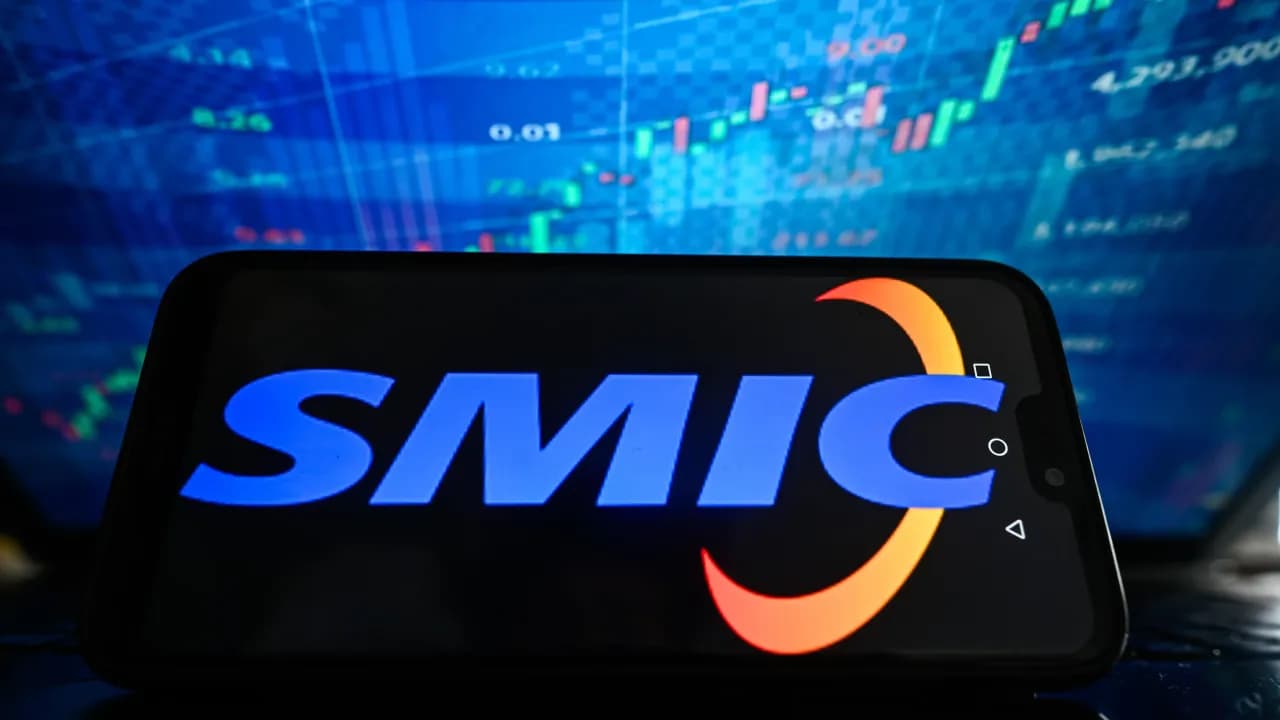SMIC CEO Zhao Haijun said domestic clients now account for 50% of the company’s 8-inch wafer orders.
Chinese chipmakers are gearing up for the inevitable amid U.S. President Donald Trump’s threat to impose 100% tariffs on semiconductor imports into the country.
Semiconductor Manufacturing International Corporation (SMIC), a partially state-owned, publicly listed Chinese pure-play semiconductor foundry company, reportedly said homegrown chip companies were gaining market share over foreign companies.
SMIC co-CEO Zhao Haijun expressed the view while speaking after the company’s earnings release, Nikkei Asia reported. The Shanghai-headquartered company is the largest contract chip maker in mainland China.
The iShares Semiconductor ETF (SOXX), an exchange-traded fund (ETF) that tracks the Philadelphia Semiconductor index, has gained 12.15% this year, aligning with Invesco QQQ Trust (QQQ)’s 11.6% advance.
On Stocktwits, retail sentiment toward the SOXX ETF has shifted to ‘neutral’ by late Thursday, from ‘bullish’ a day ago, while message volume has increased to ‘high’ levels.
Despite the tariff turbulence and China chip curbs, U.S. chipmakers such as Nvidia (NVDA) and AMD (AMD) have seen gains of 34.6% and 42.7%, respectively, this year. The iShares MSCI China ETF, meanwhile. has gained over 25%.
Zhao said SMIC’s wafer supply will continue to face constraints at least until October due to rising demand from Chinese companies that are now able to “perfectly replace” their foreign rivals.
He also hinted at exponential growth for some of the company’s domestic clients. Some power semiconductor companies now order approximately 20,000 8-inch wafers per month from SMIC, significantly higher than the 2,000 they had ordered two years prior.
The executive stated that domestic clients now account for 50% of the company’s 8-inch wafer orders. Given the supply constraints, SMIC is reportedly assisting clients in migrating to more efficient 12-inch wafer technology.
Zhao also noted that demand from the smartphone end market has remained stable despite the industry’s flat growth for years. He attributed the strength to the Chinese companies gaining share and the increased use of silicon in new models.
The company now sees the impact of Trump tariffs to be much less than 1.3% of its revenue.
Given the supply constraints, the company does not expect the fourth quarter’s slow seasonality to impact its capacity utilization. “If there are no significant changes in the external environment, the company’s target for this year remains to exceed the industry average in the same market,” he added.
While announcing that a 100% tariff would apply on chip imports into the U.S., Trump said companies that have invested in domestic manufacturing would be exempt from the higher levy.
Although the finer details of the chip levies aren’t yet clear, it is widely believed that companies such as Apple, which recently announced an incremental $100 billion domestic manufacturing investment, and foreign companies such as TSMC (TSM) and Samsung, which have built factories in the U.S., would be exempt from the sector-specific tariff.
The battle between the U.S. and China for technological dominance has intensified in recent years, as China continues to make significant inroads through its investments in technology and infrastructure. The U.S. was once a powerhouse in new technology and innovation, whereas China lagged behind. The quest for supremacy has become increasingly critical as the latest technologies, including artificial intelligence (AI), can confer significant power and influence on a sovereign nation.
For updates and corrections, email newsroom[at]stocktwits[dot]com.<
